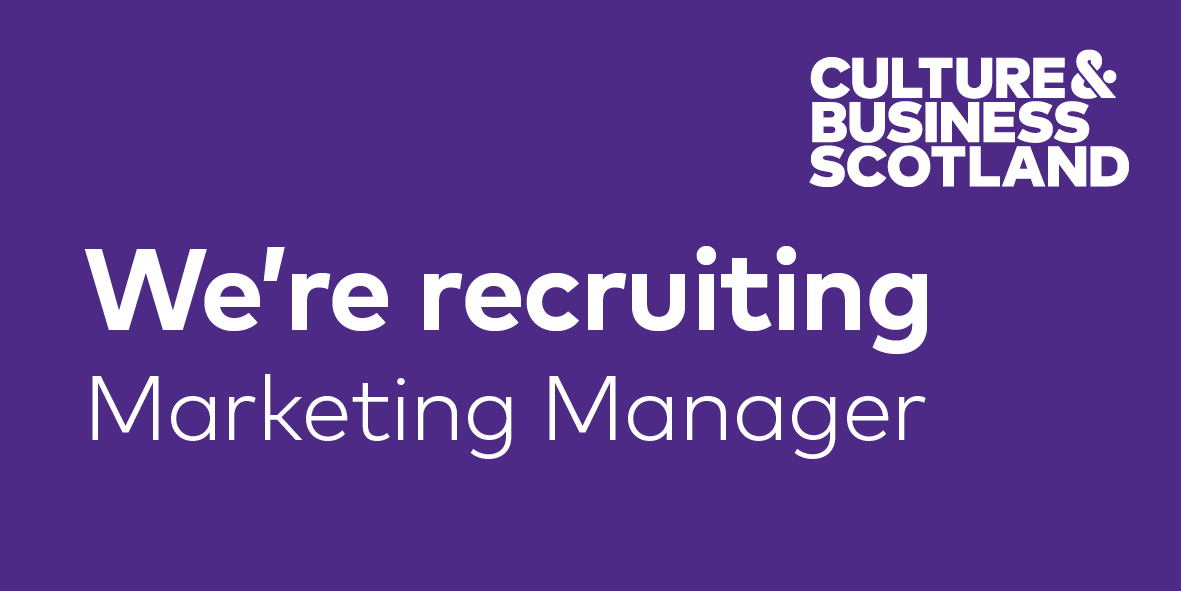By Catriona Reynolds, Head of Board Development at Culture & Business Scotland
When you picture the average boardroom, you might imagine a group of experienced professionals with long careers behind them – and of course, veterans in their fields have much to offer their respective boards. Yet there’s also an acute need to diversify, to expand, and to unite individuals from a range of professional (and life) backgrounds to ensure that the boardroom is ultimately able to not only be sustained but to remain dynamic and energised.
This is particularly true for culture boards, for whom board recruitment is often a challenge because they tend to recruit from their own existing networks, risking the exclusion of alternative perspectives. When joining culture boards, businesspeople can offer the acumen built up during their careers and the knowledge to introduce new ideas and challenge existing ones. While having board members exclusively from one professional background can be limiting, diversification can give culture boards a more expansive, encompassing viewpoint, while businesses equally stand to gain from exposure to an alternative sector.
What’s more, the requirement for greater scrutiny, as well as regulatory and societal changes to the environment in which the sector operates mean that culture boards need diverse business expertise more than ever.
Businesspeople can offer valuable insight in terms of reviewing and implementing Fair Work, Equality, Diversity & Inclusion and Net Zero strategies, helping culture boards to navigate a changing policy landscape with ease.
Individual professionals who get involved in the boardroom can also expect a host of benefits. Gaining experience in governance in a different sector of work from their own can give professionals a huge boost early on, as well as providing a confidence boost. Collaboration is a cornerstone of almost any career path in the modern age, and being exposed to the committee-style, synergetic atmosphere of the boardroom helps to develop crucial skills in working collectively, not to mention enabling people from a range of professional backgrounds to feel that they have a voice within the decision-making sphere of an organisation.
With the benefits being so vast, there is much that can, and should, be done to enable more people to access roles in the boardroom. Organisations need to be mindful that this is a voluntary role, and for younger people in particular this means adopting additional responsibilities alongside their day jobs and the corresponding need to balance their board commitments with their workplace ones. It’s also important to look at the complete profile of every individual board member’s knowledge and skills; along with a unique or fresh perspective, they might be able to offer other experience or expertise.
Although the prospect of joining a board might seem daunting, there’s a lot that organisations can do to make the process smoother and more accessible. Assigning a mentor or ‘board buddy’, for example, can give new members a fixed point of contact to guide them through the process, provide support and encouragement and answer questions. There are no universal requirements for joining a board, but interested parties should consider the importance of networking, which will help to forge those crucial connections and generate opportunities.
Potential board members can also prepare themselves by reading up on the process and getting involved in the variety of training sessions on offer, such as Culture & Business Scotland’s planned upcoming session giving insights into the experience of joining a board. Taking place virtually on 12th September, the session will be run in conjunction with Partner and Head of Charities at Turcan Connell, Gavin McEwan, who joined a culture board for the first time in 2005 and in the subsequent two decades has served on a range of boards across the culture sector. Gavin will discuss the transformative effect that being part of a board has had on his work as a solicitor, and how it gave him the opportunity to experience receiving and implementing advice as a board member.
Gavin had this to say on the benefits of board experience, “The first culture board I joined was Drake Music Scotland in 2005. That opportunity was created through Culture & Business Scotland and it set the tone for now nearly 20 years serving various boards in the culture sector. I recognised that as a charity lawyer I would be able to bring something useful to a culture board, but I had not reckoned on just how much I would learn from my time on a board. Of course I became more deeply immersed in the culture sector, and learned a great deal more about funding tensions and stakeholder demands than I had known previously. But I also learned what it was like to “be the client”.
“Giving advice was and still is my day job – but being a board member of an operational charity let me understand so much more clearly what it is like to need advice, to receive it, and to implement it. The experience transformed my approach to my work as a solicitor. Every culture board I have served on since has continued to develop my professional life while allowing me to give something back, all wrapped up in my love for arts and culture. I can’t think where else that kind of mutual benefit can be replicated in quite that way. For anyone with a passion for culture, it is an experience well worth seizing.”
At the online session, individuals will also be advised to consider which types of organisations would align most closely with their values, interest and skillsets – but should also bear in mind that there’s no need to limit their scope to their current sector of work, as organisations in very different fields may also have a lot to gain from their presence. Those looking for guidance around joining a board can email contactus@cultureandbusiness.scot for further information.
The long-term sustainability of our cultural boards will rely on people from all walks of life getting involved and seeing a place for themselves in the boardroom; it’s up to us to begin the process today, so that the boards of tomorrow will be well-placed to reap the rewards.




